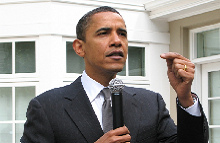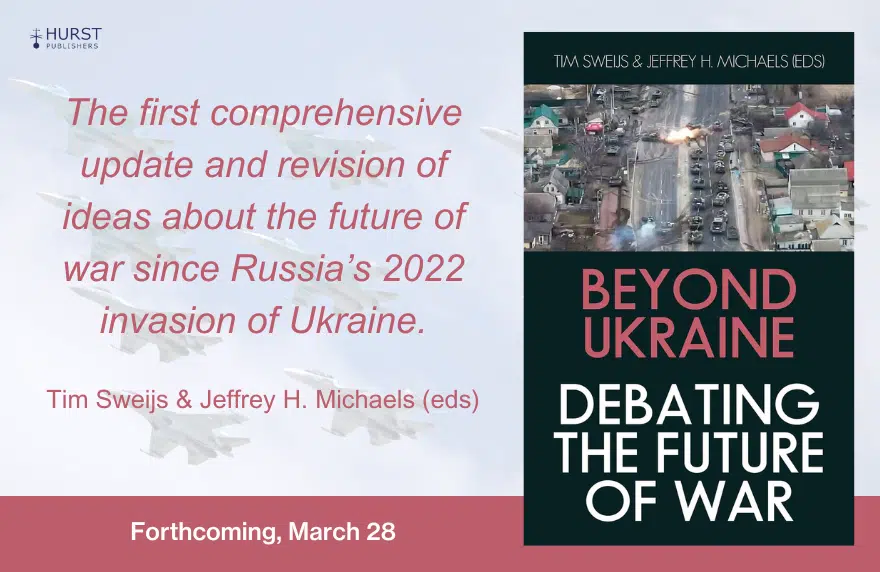After roughly eight years of US presence in Afghanistan, the Obama administration might be on the verge of a significant change in policy. Having in mind the upcoming Afghanistan policy evaluation in December, and the recent public disposal of General McChrystal for General Petraeus, rumor has it the Administration contemplates starting negotiations with the Taliban. Hopes are up that talks with the extremist movement might offer a way out of the bottomless pit for US tax money, as it now spends approximately 1 million dollar per soldier per year. With no progress on the Middle East peace process and Iran, Obama has made Afghanistan his number one foreign policy priority.
Upon the Administration’s arrival, battling the Taliban was designated its new key focus in Afghanistan. In addition to Bush’ plan of dismantling and defeating Al-Qaeda in Afghanistan and Pakistan, the prevention of a Taliban resurgence in order for a proper Afghan state to develop, gained new prominence under Obama. However, recent developments have led to a reassessment of US goals, as eight years of persecution do not seem to have weakened the Taliban to any lasting degree. Worse, it has recently increased its grip over the population, and is estimated to have a strong presence in 80% of the country. It appears the White House has now implicitly accepted this Taliban resurgence, and is looking to adapt its approach accordingly.
Recent briefings have seen a return to Bush-style rhetorics of battling Al-Qaeda and a relative silence on the previously advocated struggle against the Taliban. Its possible incorporation in the Afghan political process through negotiations, so it is argued, would be the first step in the brokering of a widely accepted power sharing agreement that should prevent a relapse in yet another civil war.
Making this party, which clearly will continue to play a significant role in Afghanistan’s future, a stakeholder of peace seems like the smart thing to do. However, is starting belated negotiations with the Taliban the answer to America’s Afghanistan problems? Prospects for diplomatic success are dim.
Firstly, there is no incentive for the Taliban to negotiate, as the insurgency is actually going quite well from their perspective. The Taliban has always refused to talk as long as foreign troops are on Afghan soil, and this demand is unlikely to change under current circumstances. Ironically, the pre-mature departure date has rather re-energized the organization, and is cleverly framed as a Taliban accomplishment. A year from now, images of sand dusted jeeps with bearded men raising their guns in victory over the mighty US will travel the world, inspiring a whole new generation of disillusioned Muslims elsewhere. With time on its side, the Taliban is likely to exploit its convenient position, knowing that no viable solution is possible without it.
Secondly, negotiating with lower class Taliban or Taliban deserters, as medium bureaucrats and eager NGO officers now often do, are a waste of energy, as the only legitimate decision maker within the organization is still Mullah Omar. Over the years, the Taliban has succeeded surprisingly well in maintaining an organizational hierarchy, in which the Pakistan-based Quetta Shura is the main decision-making organ.
The centrality of decision-making is aided by a regular re-shuffling of middlemen, and the doubling of its key members in both top and medium level organizational tiers. In addition, the decision making procedures and allegiance of the Taliban membership are still very much centered on the one-eyed amir, despite lip service paid to the notion of consensus, supported by rituals such as an oath of allegiance to him upon joining the organization. Only talks with direct representatives of Mullah Omar are therefore meaningful.
Thirdly, even with the right people at the negotiation table, room for negotiation and compromise is very limited in the Taliban, as it might discredit the organization ideologically. The organization has always made its religious ideology the most important tie with its membership, overruling tribal and national loyalties.
Despite the internationally shared perception of Taliban ideology as inflexible and extremist, examples of flexibility in policy were abundant under its rule, due to its ideological background. Its ideology is strongly based on several Islamic and regional ideologies, among which Saudi-hailed Wahhabism, Barelvism, the Pashtun tribal code Pashtunwali, the Deobandi school of Islam, and even on the longstanding Sufi past in Afghanistan. This variety of ideological sources to draw on, has left the Taliban with the opportunity to sell itself as a rather stringent, uncompromising ideological movement on a theoretical basis, while maintaining room for manoeuvre in practice. By using its religious heritage as a de facto Chinese menu, it could pick-and-mix its own ideological policy justification. This room for flexibility was especially exploited by mullah Rabbani, head of the Kabul-shura, and the Taliban’s more pragmatic liberal branch, leading to inconsistencies in the enforcement and content of Taliban rule. Rabbani soon noticed it was necessary to find a compromise between the original Taliban policies developed in a tribal social environment and the daily reality of big cities like Herat and Kabul. The realities of political rule led to a slight moderation of the often most controversial excesses of the Taliban body of thought, which proved to be socially untenable in practice.
Nowadays, the Taliban continues to be run by men who are hardly educated, and often barely literate, after having received a religious ’light’-education in one of Pakistan’s madrassas. However, over the years, its core religious doctrines, and dedication to uncompromised Islamic political rule developed into a more conservative direction, brought about by two key developments. Firstly, the influence of Omar’s conservative branch further increased, due to the early death of mullah Rabbani, which effectively ended the main liberal ideological challenge within the organization. Secondly, the old cadre is now supported by an even more extremist new generation of Taliban. These youngsters, who have their background in the madrassas in the unstable Pakistan border lands, and in its cities, lost touch with the practices of the Afghan homeland and tribal structures, therefore allowing the Taliban religious message to gain prominence relatively unchallenged by other ideologies and ideas. Accommodated by the arrests and kills of Taliban leadership, they have quickly risen through the ranks. Their more radical views, fed by the past turbulent decade of insurgency and jihad in which they gained maturity, have contributed to an even more extremist, religion-oriented outlook, less prone to the pragmatic compromises the older generation was willing to make in the past.
Even if successful negotiations can be conducted with the Taliban, the price is likely to be high. The likely outcome would be for former strongholds, such as the Kandahar and Helmand provinces, to again fall in Taliban hands with detrimental consequences for that part of the population, which has accepted western aid, and for women. The Taliban does not take well to traitors. Keeping in mind that it was only last year that the organization called upon its followers to cut the hands off of anyone who voted in the presidential elections, one does not want to imagine what will happen to people who have maintained even the most minimal of contacts with the international forces.
In addition, recent reports on the Taliban’s treatment of women silenced hopefuls, who suggested that its new struggle for the hearts and minds of the population had led to a moderation in its policies. After a Taliban take-over, all the progress that has been made in increasing the position of women, from girls-only sports clubs and schooling to reintegration into the workforce, may be reversed. A few days ago it was reported the Taliban has stoned a couple to death for adultery for the first time since their fall from power, and a recent Human Rights Watch report emphasizes the constant threats and attacks on women and girls, who break its gender regulations. Among Taliban membership, these gender rules are often legitimized by a flawed, but nonetheless strongly adhered to understanding of (deobandi) Islamic religious doctrines. They are part of the core of its ideological framework, and therefore crucial to the identity of the organization. Since the seclusion of women is also an intrinsic feature of the Islamic Emirate as envisioned by the Taliban, they are hardly open for negotiation on this subject. This inflexibility on key elements, which are highly politicized and controversial in the US, means the Administration will essentially have to decide what it is willing to trade for a ’quiet’ Afghanistan.
Obama’s rumored change in strategy would be ill-timed, offering too little too late to an uninterested negotiating partner. Even if the Taliban would be interested, room for compromise is more limited than ever, if the organization is not to lose its grassroots activist support. An overruling interest in their reintegration is likely to come at the detriment of the securing of human rights, and would possibly lead to a violent backlash against the civil population in general, ’deserters’ and women in specific. The US policy on Afghanistan has run its course, damaging other US foreign entanglements and its international stature at large along the way. Obama has to reap what he has sown in the infertile Afghan grounds. No talking will help him now.






